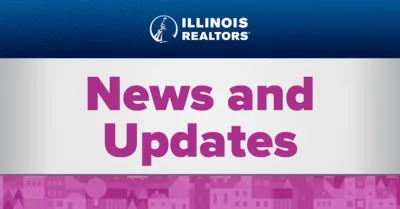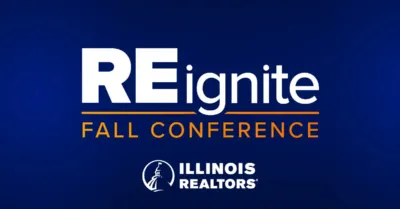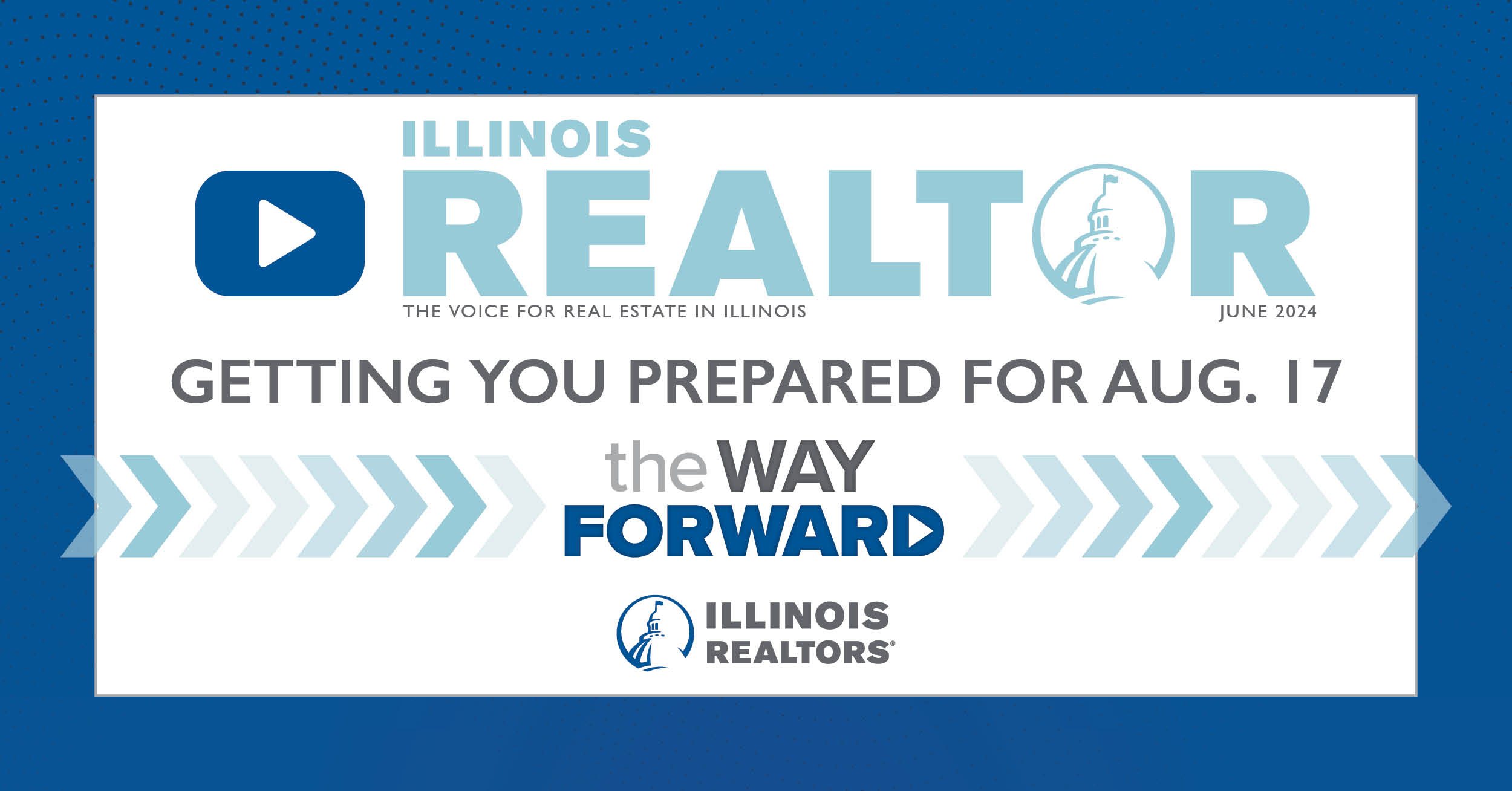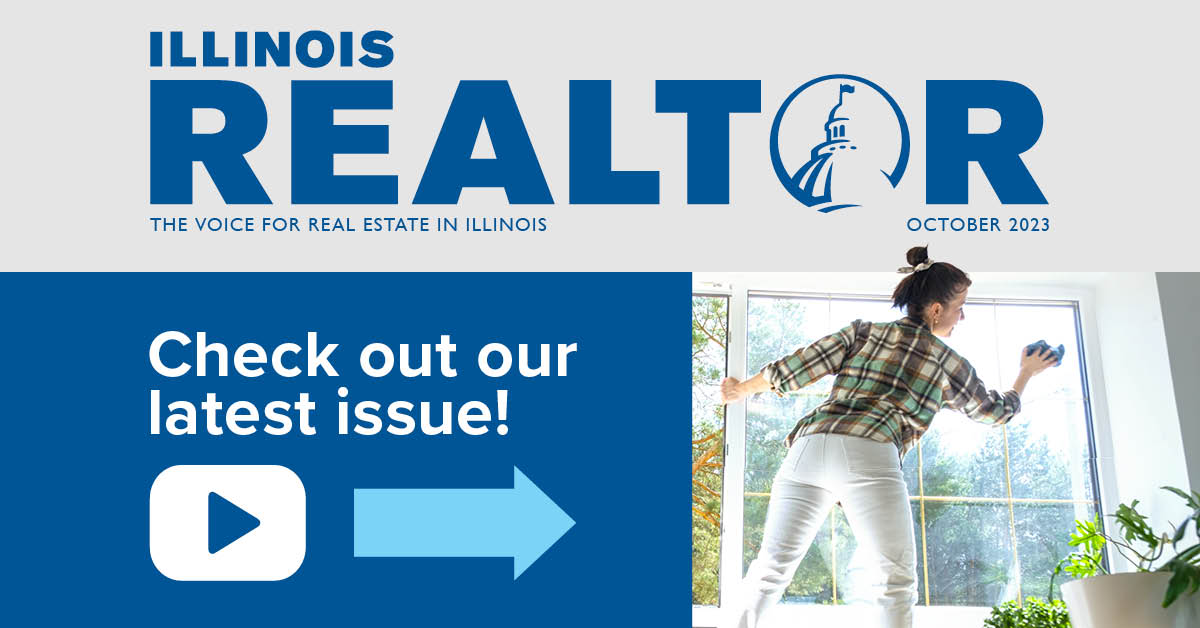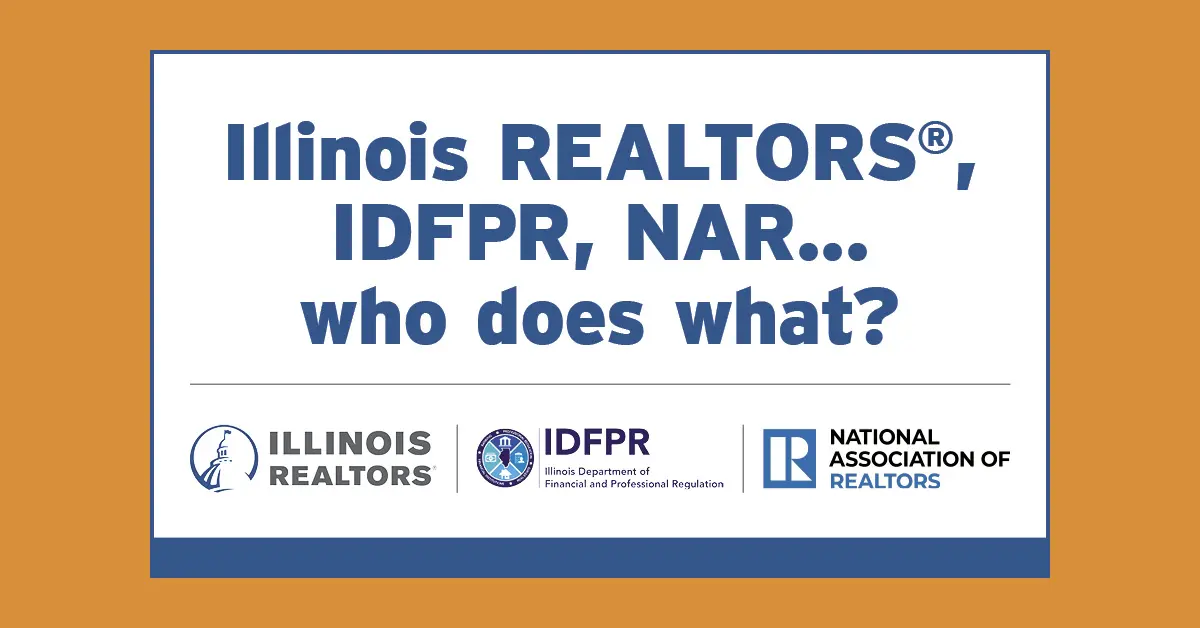April is Fair Housing Month. Show your commitment to fair housing and equal housing protection this month and throughout the year. REALTORS® need to be sure they follow federal, state, local and fair housing guidelines when providing real estate brokerage services. Here are some tips and resources to help.

A monument commemorating the federal Fair Housing Act stands in Bicentennial Plaza — A REALTOR® Community Partnership, outside the association’s Springfield headquarters.
1. Equal Opportunity Housing encompasses more than the Fair Housing Act
- Fair Housing Act – Signed into federal law in 1968, the Fair Housing Act makes discrimination illegal in the sale, lease or rental of housing, or making housing otherwise unavailable, because of race, color, national origin, religion, sex, disability, familial status.
- Americans with Disabilities Act – Title III of the 1990 law prohibits discrimination against persons with disabilities in places of public accommodation and commercial facilities.
- Equal Credit Opportunity Act – The 1974 law makes discrimination unlawful with respect to any aspect of a credit application on the basis of race, color, religion, national origin, sex, marital status, age or because all or part of the applicant’s income derives from any public assistance program.
- State and Local Laws – It is also important to check local guidelines as there are state and local laws prohibiting discrimination against additional classes not covered by federal law. For example:
-
- In Illinois, the Illinois Human Rights Act prohibits discrimination on the basis of race, color, religion, sex, national origin, ancestry, military status, age, order of protection status, marital status, sexual orientation, pregnancy, unfavorable military discharge and physical and mental disability. (NOTE: Effective Jan. 1, 2023, “Source of Income” will be added to the Illinois Human Rights Act as an additional protected class. Stay tuned to Illinois REALTOR® channels for more on this important change.)
- In Chicago and Cook County, Section 8 voucher holders are included in the source of income protected class under the city and county human rights ordinances.
- The Just Housing Amendment to the Chicago Human Rights Ordinance reduces housing discrimination by limiting how much of an applicant’s previous criminal history can be considered when evaluating rental applications. The ordinance requires a two-step screening process, with applicant’s ability to pay considered first. (More information is available at www.IllinoisRealtors.org/JustHousing).
- Some municipalities, such as Naperville and Champaign, have city ordinances that contain additional protected classes.
2. The REALTOR® Code of Ethics addresses fair housing
Under Article 10 it states: “REALTORS® shall not deny equal professional services to any person for reasons of race, color, religion, sex, handicap, familial status, national origin, sexual orientation, or gender identity.
REALTORS® shall not be parties to any plan or agreement to discriminate against a person or persons on the basis of race, color, religion, sex, handicap, familial status, national origin, sexual orientation or gender identity.
REALTORS®, in their real estate employment practices, shall not discriminate against any person or persons on the basis of race, color, religion, sex, handicap, familial status, national origin, sexual orientation or gender identity.”
A bit beyond the scope of Fair Housing, but also relevant, is the addition in 2021 of Standard of Practice 10-5 to the REALTOR® Code of Ethics, which is aimed at combating discriminatory hate speech and is applicable to all REALTOR® activities.
ARTICLE 10, STANDARD OF PRACTICE 10-5: “REALTORS® must not use harassing speech, hate speech, epithets or slurs based on race, color, religion, sex, handicap, familial status, national origin, sexual orientation or gender identity.”
Learn more about this addition to the 2022 Code of Ethics & Standards of Practice.
3. Questions about service and emotional support animals a perennial top fair housing topic
Illinois REALTORS® routinely fields questions related to tenants who have service or emotional support animals, and whether the landlord can deny an otherwise qualified applicant on that basis. The general answer to that question, is ‘no.’ A person with a service or emotional support animal cannot be denied housing on that basis.
However, the Illinois Assistance Animal Integrity Act specifically addresses accommodating requests for assistance animals. The Assistance Animal Integrity Act provides definitions for terms such as:
- Assistance animal
- Housing provider
- Therapeutic relationship
If a need for an assistance animal is not readily apparent, the housing provider can seek reliable documentation to support the need. The Act also provides circumstances under which a housing provider might deny a documented request for the assistance animal, such as:
- Whether the accommodation imposes an undue financial burden on the housing provider or a fundamental alteration to the nature of the operations of the housing provider; or
- After conducting an individualized assessment there is reliable objective evidence that the specific assistance animal:
- Poses a direct threat to others that can’t be rectified or reduced;
- Causes substantial physical damage to others’ property that can’t be reduced; or
- A pattern of uncontrolled behavior that the animal’s handler has not corrected.
Acceptable documentation in support of the request for accommodation is described in this Act, and there are provisions where the housing provider can request additional information about the professional relationship between the provider of the documentation and the person with the disability. In addition, the housing provider is allowed to balance the needs of the person seeking the assistance animal with the needs of other residents. There is also a provision protecting the housing provider from liability for injuries caused by a person’s assistance animal who is allowed as a reasonable accommodation to the person.
- Find a HUD memo and other resources on the topic.
4. Illinois Department of Human Rights offers guidebook on serving the disabled
Learn more about the adaptations that must be made in housing for persons with disabilities and their family members with the downloadable guidebook, “Reasonable Accommodations and Modifications: A Guide for Housing Professionals.” The guidebook, released in 2018 in honor of the 50th anniversary of the Fair Housing Act, aims to eliminate housing discrimination, promote economic opportunity and create more diverse and inclusive communities.
5. You can find additional fair housing resources online
Fair housing resources, links and videos from Illinois REALTOR® – www.IllinoisRealtors.org/FairHousing
Illinois Human Rights Statute – bit.ly/IL_HumanRightsAct
Fair housing resources from National Association of REALTORS® (NAR) – www.NAR.realtor/fair-housing
REALTOR® Code of Ethics, Article 10, Standard of Practice 10-5 – 2022 Code of Ethics & Standards of Practice



